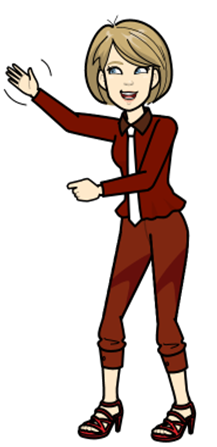I. QUANTIFIERS

In English there are many ways to express general or specific quantities, say whether quantities are adequate, and compare
different quantities. English has different phrases for quantities when the exact number is not known. For example:
- “Lots of” is used for large numbers.
- “A few” is used for small numbers.
- “A little” is used for a small quantity.
- “Some” is used when there are more than one, but the exact quantity is unknown.
II. “A LOT OF” AND “LOTS OF”
“A lot of” and “lots of” mean exactly the same. They can be used indistinctively. They are commonly used informally before uncountable nouns and plural countable nouns to indicate that there is a large quantity of something. For instance:
- Did they ask you a lot of questions in your job interview?
- There were lots of applicants in the reception office.
- That company has registered a lot of accidents lately.
- There´s a lot of cake left.
III. SOME & ANY
“Some” comes before either countable or uncountable nouns. “Some” means a number of, and it is generally used in affirmative statements and questions. For example:
- Mom, can you lend me some money, please? I need to buy some books.
“Any” comes before either countable or uncountable nouns. “Any” means a number of if it is used in questions. Any means “none” when used in negative sentences.
- Did you take any photographs of the Metropolitan Museum of Art?
No, I couldn´t take any. Taking photographs is banned.
IV. FEW FOR SMALL NUMBERS

“Few” is used with plural countable nouns to say that there are not many of something. It emphasizes how small the number is, which is usually a problem. It conveys a negative idea. For example:
- Mr. Specter explained the situation to his employees but few people understood it. (a problem)
- There were few people in the auditorium. It was almost empty.
- I have few friends here in Canada. I feel lonely.
“A few” is also used with plural countable nouns to mean “some”. It emphasizes that the number, even though small, is enough; therefore, it is not a big problem. It conveys a positive idea.
-
- Mr. Specter explained the situation to his employees and a few people understood it.
- We’re going away for a few days.
- I speak a few words of Portuguese.
- I have a few friends in Canada. They´re cool!
“Few” can also be used as a pronoun to mean “not many”. For example:
- Few are willing to discuss the problem in depth.
- Many are called, but few are chosen.
“Quite a few” (many) and “quite a bit of” (a lot of) are statements that mean “a big quantity of”. For example.
- I've been to New York quite a few times.
- The snow lasted quite a few days
- Quite a few people came to the party.
- This project requires quite a bit of work and research.
- Your brother owes me quite a bit of money.
V. “LITTLE” FOR SMALL AMOUNTS

“Little” is used with uncountable nouns to say that there is not much of something. It emphasizes how small the amount is. It conveys a negative idea or problematic situation. For example:
- There was little food in the fridge. It was nearly empty.
- Stephanie is very thin. She eats very little.
- Those people have little money. They are very poor indeed.
“Little” can also be used as a pronoun to mean “not much.”
- Little said is soon amended.
- Little can be done under those circumstances.
“A little” is used with uncountable nouns to mean “some.” It emphasizes that the amount, though small, is enough. It conveys a positive idea. Informally, “a bit of / a little bit of” can be used instead of “a little”. For example:
- A little is better than none
- I speak a little French.
My sister is getting better. Today she didn´t eat much but she drank a little water.
VI. FEWER & LESS
“Fewer” and “Less” are used to show that there is a smaller quantity or amount of something. “Fewer” belongs with plural countable nouns; while “Less” with uncountable nouns. For example:
- Fewer people write with their left hand than with their right.
- My parents like to travel in the autumn when there are fewer tourists.
- He was advised to smoke fewer cigarettes and drink less beer.
- The more haste, the less speed.
- People should eat less fat.
VIII. ENOUGH /NOT ENOUGH / TOO MANY” WITH COUNTABLE NOUNS
“Enough,” “not enough,” and “too many” are used to talk about quantities of countable nouns, which are objects or things that can be easily counted.
- ENOUGH _ Indicates the correct amount. “Enough” is used for questions.
- NOT ENOUGH _Indicates there are too few.
- TOO MUCH_ Indicates more than is needed or wanted. Analyze the following examples:
- This car is big enough for us (adjective + enough)
- She doesn´t play the piano well enough yet. (adverb+ enough)
- I didn´t read the instructions carefully enough.
- Did you sell enough cakes yesterday? _Yes, I sold 10 cakes. That was enough!
- This hamburger is too big for me to eat. Can I share it with you?
- Don´t get too close to the tigers and lions. It´s too dangerous!
VIII. ENOUGH / NOT ENOUGH / TOO MUCH WITH UNCOUNTABLE NOUNS

“Enough,” “not enough,” and “too much” are used to talk about amounts of uncountable nouns, which are things that cannot easily be counted.
- ENOUGH _ Indicates the correct amount or degree of something. “Enough” is used for questions.
- NOT ENOUGH _Indicates too little.
- TOO MUCH_ Indicates more than is needed or wanted.
Read the following examples thoroughly:
- This soup isn´t hot enough to eat.
- The subway isn´t moving fast enough.
- Could you buy enough food for the week?
- In summer my house is too hot.
- Jessica speaks too fast!
IX. APPROXIMATE QUANTITY.
without specific figures, there are a few quantifying phrases that can be used. For example:
“In some cases” _ Some is quite unspecific, but it may mean around 40% of the quantity.
- “In some cases, people have to wait several weeks for an appointment”
“In a minority of cases/ In a few cases” _ A minority is much less than half; approximately 20%.
- This illness is absolutely rare, and only in a minority of cases (in a few cases) it goes on to develop long-term problems.
“In the majority of cases / In most cases” _ Most and majority refer to more than 50%.
- In the majority of cases (in most cases) our customers find our services highly efficient.
“In some cases / In a number of cases” _ These reference may mean around 40%.
- In some cases (In a number of cases) our customers find our services rather expensive.
x CONSOLIDATION. TRY THE FOLLOWING QUIZ
XI EXERCISE I. Read the sentences. Choose the correct answer. Multiple choice.
XII READING TEXT
READING TEXT
SECTION I. Read the following sentences taken out of the conversation and place them where they would fit best. There is only one correct answer.

EMME IS VISITING A FRIEND FOR THE FIRST TIME
A Oh, I don’t know.
B There are a lot of houses in our country that are that old.
C Mom will finish making lunch in the meantime.
D You have the best house ever!
E We will have to ask Emme´s parents.
F In three hours or so. After lunchtime.
G Why are you so mean?
H I play in the same swing near the pond that she played in when she was a kid.
I Have you always lived in that house?
J See you later then.
Today, twelve-year-old Emme is going to her friend Melissa´s house for her first visit. She is happy but a little scared too. Her Mom is now driving her to Melissa´s home and they´re talking about Emme´s expectations.
Mom: What a great day! Your very first visit to a friend’s house!
Emme: What time will you come to get me?
Mom: (1) _________
Emme: What if Melissa´s mom doesn´t like me? I´d rather stay home Mom….
Mom: I’m sure you´ll be fine. Melissa´s mom knows how to treat little girls like you.
Emme: (2) _________
Mom: We are here. Now, I´ll watch you from here as you walk up to the house. Enjoy your first visit!
Emme: Okay, Mom. (3) _________
Melissa´s Mom: Emme! We are so happy you came to visit. Come on in!
Melissa: Hi Emme! We can go to my room. (4) _________
Emme: Wow! I love your room. Your house is so cool! Everything looks brand new!
Melissa: Thank you! It is a new house, actually. We just moved in. Do you want to play some videogames?
Emme: Yes! That will be lots of fun!
Melissa: And is your house similar to mine?
Emme: No, our house is kind of old. My grandpa built it like eighty years ago.
Melissa: Is your house eighty years old? It must be falling down already!
Emme: No, no!! Our house is not falling down! (5) _________
Melissa: Sorry…I just thought it was very old…but I didn´t mean to hurt you (At that moment)
Melissa´s Mom: Hey girls, food is ready!
_As they heard Melissa´s mom calling them, the girls put the keyboards down and went to the kitchen. Melissa noticed that Emme was not happy. Actually, Emme wanted to go home now. She’d felt sad because of Melissa´s comment about her house. She sat at the table and tried not to cry, then Melissa said to her Mom: “Mom, did you know that Emme’s house is quite old? It´s nearly eighty years old” _ Now Emme was really heartbroken and wanted to leave or cry!.
Melissa´s Mom: That´s a historic house then! Oh, I love that! (6) _________
Emme: Yes, since I was born. My Mom was born there too, and (7) _________
Melissa´s Mom: You´re lucky! I would like to have a swing for Melissa too! You see, we move a lot and we never have big trees in our yard to build a swing You are so lucky to live in the same house where your Mom was born.
Melissa: Mom, I thought a house that old would be ugly and broken down.
Melissa´s Mom: Oh no! (8) _________If you take good care of them, they are the very best houses ever! I would love to live in a historic house.
Melissa: Can I go to Emme’s home and play with her in her swing and visit the pond?
Melissa´s Mom: It depends. (9) _________If they says yes, then you can go for a visit.
Emme: Hurray! We can play on the swing and my new seesaw and slide my father built!
Melissa: A seesaw! You have a seesaw and a slide?? (10) _________
Emme: I do! You will love my playground as much as I do!!
XIII BIBLIOGRAPHY
Cambridge University Press. (2015). Cambridge Advanced Learner’s Dictionary. Fourth Edition.
Eastwood, J. (2019). Oxford Practice Grammar. Intermediate. Oxford University Press.
Hewings, M. (2013) Advanced Grammar in Use with Answers: A Self-Study Reference and Practice Book for Advanced Learners of English. CUP
Murray, L. (2014) English Grammar. Cambridge University Press.
Swan, M & Walter, C. (2016). Oxford English Grammar Course. Intermediate. Oxford University Press.
XIV WEB RESOURCES
Images1,2,3,4_Compra propia de licencias de banco de imágenes de Pixton y Pngtree, exentas de derechos de autor. https://www-es.pixton.com/ & https://es.pngtree.com/free-backgrounds
Image5_Compra propia hecha por Connie Reyes Cruz de licencias de banco de imágenes de Pixton y Pngtree, exentas de derechos de autor. https://www-es.pixton.com/ & https://es.pngtree.com/free-backgrounds
XV CREDITS
- Practice exercise written by Connie Reyes Cruz_2022_ENES- LEÓN-UNAM
- Audio version performed by Kimberly and Matt_Compra propia de licencia de uso de voces en Voicemaker, exenta de derechos de autor. https://voicemaker.in/ _Connie Reyes Cruz_2022_
- Practice exercises written by Connie Reyes Cruz_2022_ UNAM-ENES-LEÓN
- Text_ Own source.
- Practice exercise written by Connie Reyes Cruz